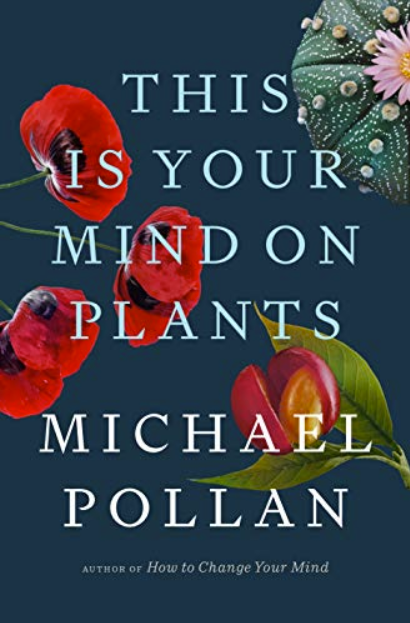I’m giving the opening keynote at the Maine Grain Alliance’s 2025 Kneading Conference, which culimiantes in the Maine Artisan Bread Fair on July 26. My talk is at 8:30 a.m. at the Strand Cinema in Skowhegan, Maine. I’m really looking forward to this one.
Weekend reading: Michael Pollan’s “Your Mind on Plants”
Michael Pollan. This is Your Mind on Plants. Penguin, 2021.

This book is a great read: informative, smart, hilariously funny on occasion, and wonderfully written, as is only to be expected from anything Pollan produces.
The book is about three plants that are sources of mind-altering drugs, poppies (opium), tea and coffee (caffeine), and peyote cactus (mescaline).
The tea and coffee bring it into the realm of food politics, and I’ll stick to them for the moment (but the poppies chapter is particularly riveting, tough, and timely).
An excerpt beginning on page 99:
Most of the various plant chemicals, or alkaloids, that people have used to alter the textures of consciousness are chemicals originally selected for defense. Yet even in the insect world, the dose makes the poison, and if the dose is low enough, a chemical made for defense can serve a very different purpose: to attract, and secure the enduring loyalty of pollinators. This appears to be what’s going on between bees and certain caffeine-producing plants, in a symbiotic relationship that may have something important to tell us about our own relationship to caffeine…[in an experiment] even at concentrations too small for the bees to taste, the presence of caffeine helped them to quickly learn and recall a particular scent and to favor it…Actually we don’t know whethe the bees feel anything when they ingest caffeine, only that the chemical helps them to remembe–which, as we will see, caffeine appears to do for us, too.
Another from page 145:
Would people have ever discovered coffee or tea, let alone continued to drink them for hundreds of years, if not for caffeine? There are countless other seeds and leaves that can be steeped in hot water to make a beverage, and some number of them surely taste better than coffee or tea, but where are the shrines to those plants in our homes and offices and shops? Let’s face it: The rococo structures of meaning we’ve erected atop those psychoactive molecules are just culture’s way of dressing up our desire to change consciousness in the finery of metaphor and association. Indeed, what really commends these beverages to us is their association not with wood smoke or stone fruit or biscuits, but with the experience of well-being—of euphoria—they reliably give us.

